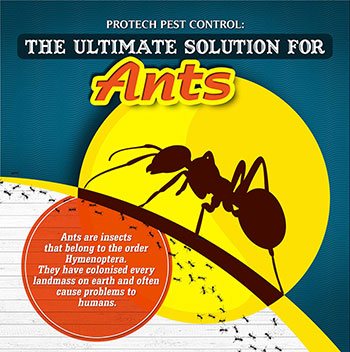The Advantages And Disadvantages Of Chemical Bed Pest Therapies: What You Need To Know
The Advantages And Disadvantages Of Chemical Bed Pest Therapies: What You Need To Know
Blog Article
Writer-Dillon Willard
Did you know that bed insects are just one of the most tough insects to remove? If you're considering chemical therapies to get rid of these pesky creatures, it is essential to evaluate the benefits and drawbacks.
In this short article, we'll check out the performance of chemical bed pest treatments, the possible health risks connected with them, and their influence on the setting.
By comprehending these aspects, you'll be much better outfitted to make an educated choice about tackling your bed insect issue.
Effectiveness of Chemical Bed Insect Therapies
You will be pleased to know that chemical bed bug treatments are generally quite effective in getting rid of problems. These therapies work by targeting the bed bugs' nerve system and interrupting their capability to feed and reproduce. By using chemicals especially developed to eliminate bed pests, you can effectively eradicate them from your home.
Among the benefits of chemical treatments is their capability to get to even one of the most hard-to-reach areas, such as cracks and crevices where bed pests like to conceal. Furthermore, chemical treatments can supply lasting results, aiding to prevent future infestations.
Nevertheless, it is very important to comply with the guidelines meticulously and take essential safety and security preventative measures when making use of these therapies.
Prospective Wellness Risks of Chemical Bed Bug Treatments
There are a number of potential wellness dangers connected with chemical bed insect treatments that you need to understand. While these therapies can successfully get rid of bed pests, they might also posture dangers to your health and wellness.
One usual danger is the exposure to hazardous chemicals. The pesticides made use of in these treatments can be harmful if inhaled or if they enter contact with your skin. Some people might experience allergic reactions or respiratory problems because of this.
Additionally, chemical therapies might leave residue on surface areas, which can be ingested or taken in with the skin, causing further health issues.
It's important to thoroughly comply with the instructions given by professionals and take needed precautions to minimize the prospective health and wellness dangers associated with chemical bed insect therapies.
Environmental Impact of Chemical Bed Insect Treatments
One possible interest in chemical bed pest therapies is their effect on the setting. When taking into consideration the environmental impact of chemical bed insect therapies, below are 4 important elements to bear in mind:
1. Pesticide drainage: Chemical treatments can possibly pollute water resources, bring about hazardous results on marine life and ecological communities.
2. Breeding seasons : The release of chemical fumes throughout therapy can add to air contamination, impacting not only the atmosphere however additionally human wellness.
3. Damage to helpful pests: Chemical therapies may not only target bed bugs but likewise injury useful bugs such as bees and butterflies, which play important duties in pollination.
4. Long-lasting results: The use of chemicals might have long-lasting repercussions on the setting, consisting of soil contamination and disturbance of natural communities.
Thinking about these aspects, it's important to evaluate the possible dangers and benefits of chemical bed insect treatments and explore different, a lot more eco-friendly choices.
Conclusion
So, when it pertains to chemical bed pest treatments, there are absolutely pros and cons to consider.
On one hand, they can be extremely reliable in doing away with these pesky insects.
However, there are possible health risks to be familiar with, as well as the environmental effect of using chemicals.
It is essential to evaluate these aspects thoroughly before selecting a therapy approach.
Yet, what happens if there was an additional solution? Something that could efficiently remove bed insects without the downsides?
Keep tuned, due to the fact that there might just be an unexpected alternative imminent.
